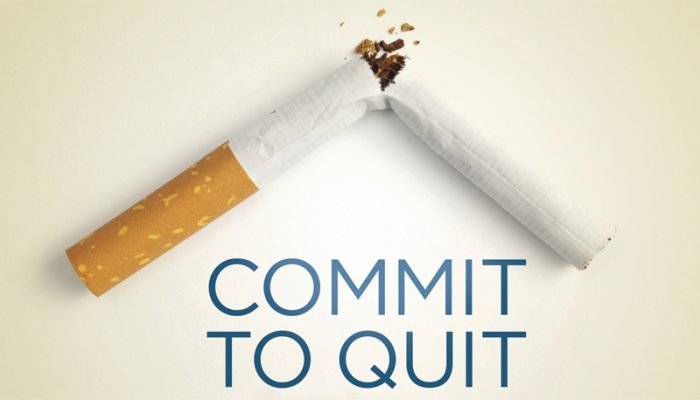This blog was written by Ronelle Nemshick, CTTS-M, Tobacco Treatment Specialist at the Philadelphia Department of Public Health.
World No Tobacco Day is held every year on May 31 all over the world. This special day was intended to bring awareness to the negative effects of smoking. Death and disease caused by tobacco use are completely preventable. Here are six tips to help prepare you for World No Tobacco Day and start your journey to becoming tobacco–free.
Find your reason
Motivation is key when it comes to quitting smoking. Find a reason, or even multiple reasons, to become tobacco-free. Maybe you want to better your health. Maybe you want to save money. Maybe you are tired of smelling smoke on your clothing. These are all great reasons, however, find the “one” that means the most to you and focus on achieving that goal.
Throw it out
Getting rid of anything that reminds you of smoking is a very important step for quitting. A pack of cigarettes, a lighter, an ashtray- these can all be triggers for someone to want to smoke. Getting rid of all these things will allow you to think about smoking less often and not be tempted to smoke when seeing them lying around the house or in your car.
Make a plan
Preparation is a very important step when it comes to quitting smoking. Set a quit date and make a plan as to how you are going to quit and what steps you need to take in order to get there successfully. What are you going to do when a roadblock occurs? Do you have a backup plan set in place? What can you do if you are triggered to smoke? These are all important questions to ask yourself before you start your journey to becoming tobacco–free.
Get nicotine withdrawal support
When someone stops smoking, nicotine withdrawal can affect their mood, energy, and ability to focus. Utilizing nicotine replacement therapies can help curb urges and cravings to smoke. There are also prescription medications like Chantix that can also help curb cravings and make smoking less satisfying. Studies show that using a medication to assist with quitting smoking increases your chances of successfully quitting. In combination with medication, counseling can also significantly help to improve your chances of quitting. There is also a free service available called the PA Quitline. You can speak with a certified counselor and receive free nicotine replacement therapies in the mail. You can enroll by calling 1-800-QUIT-NOW or visiting their website.
Avoid triggers
Maybe it’s coffee. Maybe it’s after you eat. Maybe it’s when you get bored waiting outside for the bus to come. Finding things to do that delay or distract you from smoking can help to occupy your time and deter you from smoking. Try taking a walk. Chewing a piece of gum. Having a drink of water. All these things are great ways to avoid your trigger and change up your typical routine.
Keep Trying
If you have a setback don’t get discouraged. Keep trying. Were you around someone else who was smoking? Were you stressed out about something? Did you have alcohol out with friends? You can learn from your relapse and build off what you learned to ensure you don’t repeat that same encounter the next time. Quitting can be challenging at times, but the reward of being tobacco free is worth it!
Quitting smoking can sometimes be a process, but help is always available. Call 1-800-QUIT-NOW to speak with a trained tobacco counselor. Go to SmokeFreePhilly to find more resources to help you quit.




